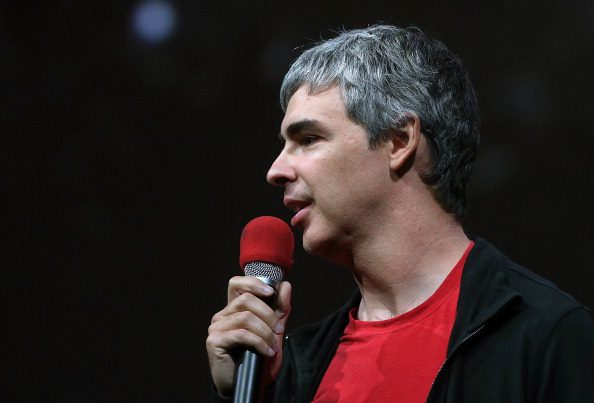
The Google Mission Statement has stayed the same, but continues to evolve.
In a 2014 interview with The Financial Times, Larry Page once said Google was trying to capitalize on its success in its search business by staking claims in developing markets such as robotics, biotech and other industries that can have direct benefits to quality-of-life issues.
“We’re in a bit of uncharted territory,” Page told The Financial Times. “We’re trying to figure it out. How do we use all these resources . . . and have a much more positive impact on the world?”
Page insisted in the interview that the company’s societal goals are still primary, even though “we’ve not succeeded as much as we’d like.”
Google’s original mission statement was “to organize the world’s information and make it universally accessible and useful.” In 2014, Page suggested the Internet giant was due for a change to mission statement. “I think we do, probably,” Page told The Financial Times. “We’re still trying to work that out.”
It’s unofficial motto used to be “Don’t be evil,” a phrase which appears on its Code of Conduct page for employees and investors. This unofficial motto was dropped in 2015 when Google’s newly created parent company, Alphabet, got rid of it.
“Employees of Alphabet and its subsidiaries and controlled affiliates should do the right thing—follow the law, act honorably, and treat each other with respect.” According to TIME, Alphabet subsidiaries will be able to adopt their own motions and codes to reflect their own cultures.
The Alphabet Inc. move ended up being the catalyst for the change that Page foresaw in the 2014 interview with The Financial Times. By creating Alpabet Inc., Page was able to remove Google from other-related ventures while keeping the original mission statement in place.
In a letter announcing Alphabet, Page wrote: “We’ve long believed that over time companies tend to get comfortable doing the same thing, just making incremental changes. But in the technology industry, where revolutionary ideas drive the next big growth areas, you need to be a bit uncomfortable to stay relevant.” He said that organizing the world’s information will continue to be the company’s core mission statement.
Former Google People Chief, Laszlo Bock once wrote the Google Mission Statement differed from many Fortune 500 companies in that it is a moral goal, not a business goal. “A mission that is about being a ‘market leader,’ once accomplished, offers little more inspiration. The broad scope of our mission allows Google to move forward by steering with a compass rather than a speedometer,” he wrote in 2015.
According to Bock, the mission statement “provided a touchstone for keeping the culture strong” as the company grew from a tech start up to the multinational corporation it has become.
UPDATED 6/1/18
Chief Executive Group exists to improve the performance of U.S. CEOs, senior executives and public-company directors, helping you grow your companies, build your communities and strengthen society. Learn more at chiefexecutivegroup.com.
0

1:00 - 5:00 pm
Over 70% of Executives Surveyed Agree: Many Strategic Planning Efforts Lack Systematic Approach Tips for Enhancing Your Strategic Planning Process
Executives expressed frustration with their current strategic planning process. Issues include:
Steve Rutan and Denise Harrison have put together an afternoon workshop that will provide the tools you need to address these concerns. They have worked with hundreds of executives to develop a systematic approach that will enable your team to make better decisions during strategic planning. Steve and Denise will walk you through exercises for prioritizing your lists and steps that will reset and reinvigorate your process. This will be a hands-on workshop that will enable you to think about your business as you use the tools that are being presented. If you are ready for a Strategic Planning tune-up, select this workshop in your registration form. The additional fee of $695 will be added to your total.

2:00 - 5:00 pm
Female leaders face the same issues all leaders do, but they often face additional challenges too. In this peer session, we will facilitate a discussion of best practices and how to overcome common barriers to help women leaders be more effective within and outside their organizations.
Limited space available.

10:30 - 5:00 pm
General’s Retreat at Hermitage Golf Course
Sponsored by UBS
General’s Retreat, built in 1986 with architect Gary Roger Baird, has been voted the “Best Golf Course in Nashville” and is a “must play” when visiting the Nashville, Tennessee area. With the beautiful setting along the Cumberland River, golfers of all capabilities will thoroughly enjoy the golf, scenery and hospitality.
The golf outing fee includes transportation to and from the hotel, greens/cart fees, use of practice facilities, and boxed lunch. The bus will leave the hotel at 10:30 am for a noon shotgun start and return to the hotel after the cocktail reception following the completion of the round.